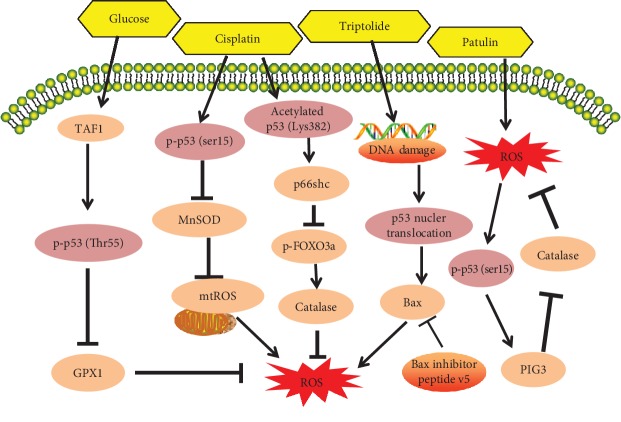Figure 1.
The prooxidant role of p53 signaling pathways in chemically induced oxidative stress (compiled from different cell types/lines and tissues): p53 activation in response to chemicals can increase intracellular oxidative stress and mitochondrial ROS levels. Chemicals cause p53-mediated prooxidant effects through mechanisms involved in the inactivation of GPX1, MnSOD, and FOXO3a and the activation of p66shc, PIG3, and Bax signals.

